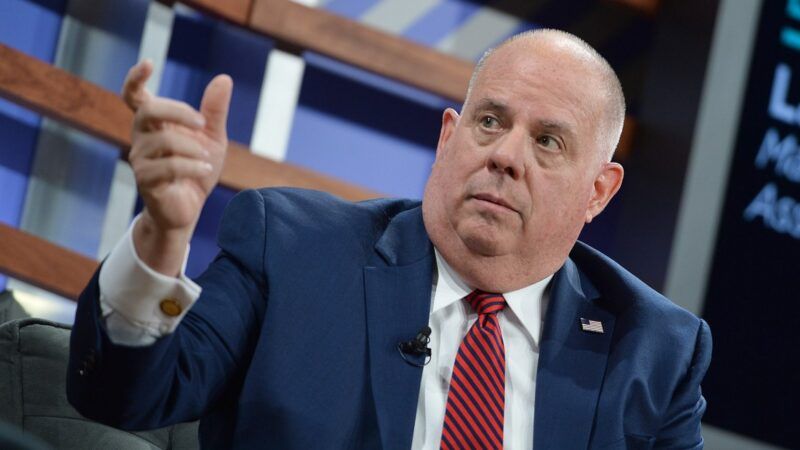Maryland Lawmakers Purge Decades-Old Law That Shielded Bad Cops
Over the objections of Gov. Larry Hogan, the state’s Law Enforcement Officers' Bill of Rights is tossed out.

Maryland lawmakers defied Republican Gov. Larry Hogan over the weekend and eliminated the state's Law Enforcement Officers' Bill of Rights (LEOBR). Since the '70s, that law has made it harder to investigate and fire bad cops.
When police unions pushed through such laws, which still exist in 15 other states, they argued that the legislation would make sure cops receive due process when they're accused of misconduct. But in reality, these laws give officers special protections that shield them during investigations. They mandate a "cooling off" period before a cop can be interviewed after a citizen files a complaint, giving accused officers time to plan out how they'll respond to questioning—a privilege not granted to most people accused of criminal behavior. They make it harder (or impossible) to access police discipline records. And they mandate that the panels that determine the fate of officers accused of misconduct be made up of fellow police officers. They forbid independent investigations of cops, and they overrule the judgment of police chiefs.
Maryland was the first state to pass a LEOBR in 1972, and now it's the first to get rid of one. House Bill 670 replaces that police board with an independent Police Accountability Board in each county; it will be staffed by civilians, not police officers. They will recommend disciplinary action. A police chief will have the authority to impose additional discipline, but he or she can't water down the board's recommendations. The accused officer is entitled to a trial if he or she wants to appeal the discipline, and the trial board will consist of a judge, a civilian, and a police officer.
In other words, the new system includes due process but it's not a kind that the police union can control.
The House and Senate passed the bill in early April, but Hogan vetoed it on Friday, along with two other police reform bills. (The others would mandate that police wear body cameras, would require the use of force to be "necessary and proportional" to the situation, and would limit the use of no-knock warrants to daylight hours and to times when the officers show they're necessary to avoid destruction of evidence and to protect their own lives and safety.) The legislature overrode all three vetoes on Saturday.
In Hogan's veto message, he claims that the bills "would undermine the goal that I believe we share of building transparent, accountable, and effective law enforcement institutions and instead further erode police morale, community relationships, and public confidence." Given the public outrage that inspired these reforms, does Hogan really expect people to believe that these bills would undermine "community relationships and public confidence"? A compromise legislation as it is, the restrictions on no-knock warrants have enough exceptions for "exigent circumstances" that it's not even actually clear that it will lead to fewer raids.
Incidentally, the cases that provoked those protests—the police slayings of Breonna Taylor in Kentucky and George Floyd in Minnesota—both took place in states with LEOBR protections.
Walter Olson, a contributing editor at Reason, serves as a co-chair of Maryland's Citizens Redistricting Commission; he's also a critic of LEOBRs. He tells Reason he appreciates the symbolic importance of repeal as well as lawmakers' focus on the provision's importance. But he's not sure a civilian panel will produce as much change as people are hoping for. He thinks that chiefs and sheriffs should be making the calls and being held accountable for those decisions.
"There will still be a hearing panel, just differently made up, and so forth," he tells Reason. "If you take the view that police chiefs or sheriffs should have straightforward authority to address officer misconduct, and then should be politically accountable to voters for those decisions—well, this doesn't get us there."
This post has been updated to clarify Olson's comments.


Show Comments (21)